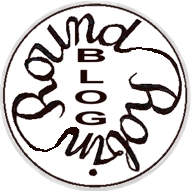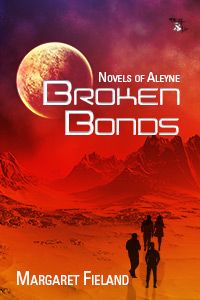 Topic: How easy or difficult do you find including humor in your
Topic: How easy or difficult do you find including humor in your
writing and/or have you ever incorporated a true life humorous event in
your own life or the life of someone you know in a book you were
writing?
I love to include humor in my writing. Often it’s only a couple of lines, like the ones from a scene in a comedy club from Rob’s Rebellion
“No worries, Charlie.” Senator Cromwell reached for Suzy’s hand and held it. “When do you go on?”
“Right after the goons who are up now. You never heard such lame jokes.”
“I have heard them, and that’s the trouble,” Senator Nakai mumbled.
As far as I can recall, I have never included an incident that happened to me or to someone else I know in my fiction. My poetry, however, is another story. A lot of it is funny, rhymed, or both, and a lot is inspired by incidents in my own life. And even when whatever inspired the poem is serious, the poem itself is not.
I wrote the poem below, which appeared in Village Square when I was taking an online grammar course. The course material was the kind of material that causes students to tear their hair out, but the poem is sheer fun. It’s written as rhymed free verse and contains only a couple of made-up words <grin>
Phrasical Subordination
The main clause of the sentence names the thing you mainly do
but it can have subordinates and more than just a few,
and realize that subordinates can have subordinates, too.
Oh, a sentence needs a subject and a verb.
A subordinate’s connected by some word up to the main
by kinds of words that form a sort of phrasicallic chain,
like what, and where and who and which that more that tax my brain.
Oh, a sentence needs a subject and a verb.
See, relative pronounic phrases modify a noun.
If the noun is missing, then grammarians will frown,
Give it a noun to modify and you can go to town.
Oh, a sentence needs a subject and a verb.
If you need to pick a that or need to pick a which
you’ll need a method to decide where you can make the switch,
If you can drop the phrase, well then the which is not a glitch.
Oh, a sentence needs a subject and a verb.
A subordinate conjunction starts adverbialic phrase.
It modifies the verb in ways that surely will amaze.
If it starts the sentence, then a comma is displayed.
Oh, a sentence needs a subject and a verb.
Whom denotes an object, it’s the object of the do.
If your phrase requires an object, then the whom’s the one for you.
If you need a subject, well, you must then pick the who.
Oh, a sentence needs a subject and a verb.
A noun dependent clause is used just like the noun to bring
an object or a subject or a relativic thing
by words like what or, where or how, to add a bit of zing.
Oh, a sentence needs a subject and a verb.
I hope this little ditty helps to clarify your mind.
It’s helping me to classify the phrasicallic kind
in a way that’s maybe just a bit less of a grind.
Oh, a sentence needs a subject and a verb.
Do check out the posts of my fellow bloggers:
Skye Taylor http://www.skye-writer.com/blogging_by_the_sea
Diane Bator http://dbator.blogspot.ca/
Beverley Bateman http://beverleybateman.blogspot.ca/
Dr. Bob Rich https://wp.me/p3Xihq-1Tb
Connie Vines http://mizging.blogspot.com/
Anne Stenhouse http://annestenhousenovelist.wordpress.com/
Margaret Fieland https://margaretfieland.wordpress.com
A.J. Maguire http://ajmaguire.wordpress.com/
Victoria Chatham http://www.victoriachatham.com
Judith Copek http://lynx-sis.blogspot.com/
Rhobin L Courtright http://www.rhobinleecourtright.com










 Aleyni scholar and teacher, Imarin Namar, one of his former partners, involved in government, and Nidrani Namar, another former partner, a woman, and a musician. As well, there was Senator Hank Manning, a member of the Terran Federation senate.
Aleyni scholar and teacher, Imarin Namar, one of his former partners, involved in government, and Nidrani Namar, another former partner, a woman, and a musician. As well, there was Senator Hank Manning, a member of the Terran Federation senate.




